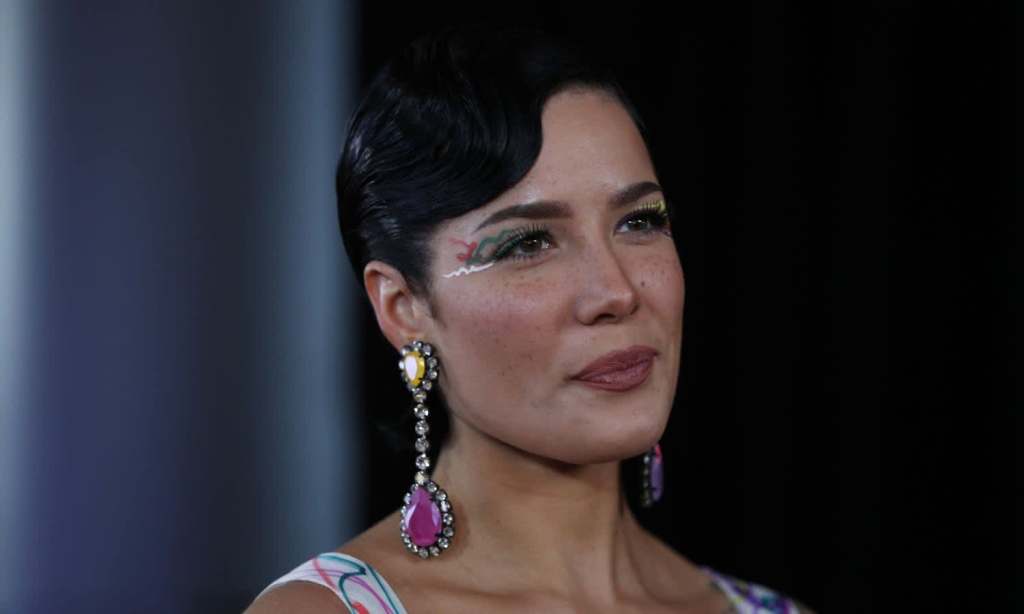Trigger warning: this article contains references to mental illness, suicide, sexual assault and miscarriage.
Halsey, the 26-year-old Grammy-nominated artist, has always been an open book when it comes to her experiences with mental and reproductive health.
The singer, whose real name is Ashley Nicolette Frangipane, was diagnosed with bipolar disorder at the age of 17 — attempting suicide at that same age. For Halsey, music was a way of managing the symptoms of her mental disorder and her work has almost certainly helped others going through similar experiences .
In 2020, Halsey took part in YouTube’s Artist Spotlight Stories conversation series with psychologist Snehi Kapur as part of Mental Health Awareness Month. The singer wanted to help her fans gain a better understanding of bipolar disorder which typically consists of two phases — a low phase and a manic one.
Working to break down the stigmas and stereotypes around the mood disorder, Halsey relayed that people often didn’t think that she fit the “mould” of what someone suffering bipolar looks like as they see “a young woman who’s achieving all of these goals.”
Drawing on the hypocrisy and contradictions of the way mental illness is treated in the media, Halsey said that it is celebrated when it is resulting in record sales but weaponised if it results in cancelled shows or other lost profits. “The way that they can take the narrative away from you after you’ve chosen to share it is what’s one of the most terrifying parts,” she said.
Watch the video below, story continues underneath.
Halsey’s fourth studio album Manic, which was released in January 2020, was made while the singer was in a manic state and features deeply personal songs about topics ranging from her split from partner G-Eazy to her struggles with reproductive health, another facet of her life she has openly shared with fans.
Now expecting her first child, the singer has shared her experiences of living with endometriosis — a painful chronic condition in which the tissue that normally lines the uterus, grows in other parts of the body, making conception or carrying a child to term difficult.
On the track More, Halsey is candid about her desire to have a child and the miscarriages she has suffered, one of them on stage during a concert in 2015. The lyrics are painfully poignant, and resonate with anyone who has suffered infant loss, as Halsey wistfully sings, “Feelin’ so incomplete/ wonder will we ever meet?/And would you know it right away/how hard I try to see your face?/A little screen, a photograph, mine to take.”
In a 2020 interview with The Guardian, Halsey explained how her previous inability to carry a child impacted her mentally saying, “It’s the most inadequate I’ve ever felt. Here I am achieving this out-of-control life, and I can’t do the one thing I’m biologically put on this earth to do. Then I have to go onstage and be this sex symbol of femininity and empowerment? It is demoralising.”
View this post on Instagram
The singer’s unbridled talent combined with her openess about mental and reproductive health, as well as her sexuality (she identifies as bisexual) and her advocacy for the Black community has truly made her a force to be reckoned with both sonically and socially.
Halsey’s willingness to share the most traumatic, personal and taboo areas of her life — whether through songs, interviews or rousing speeches such as the one she shared at the 2018 Women’s March in New York City — make her not just an intoxicating artist to watch, but an important leader in the fight to encourage more informed conversations around topics that require deeper understanding and greater education.
While it is, by no means, the responsibility of one young woman to carry the weight of educating the masses simply because she is biracial, bisexual and bipolar (or, as Halsey calls herself: “tri-bi”) it is inspiring to see her rise to the occasion as an artist, a public figure and, now, as a mother.
If you or anyone you know is struggling and needs support, call Kids Helpline on 1800 55 1800 or Lifeline on 13 11 14, both of which provide trained counsellors you can talk with 24/7. You can also speak with someone confidentially at Headspace by calling 1800 650 890 or chat online here.







